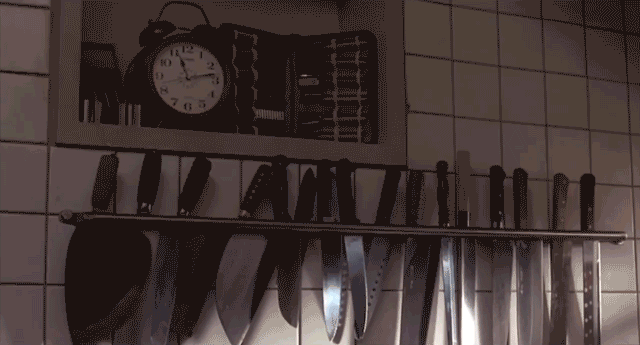One: I’m still thinking about “a good tool allows you to do what you want to do exactly”, and remembered this (now almost eleven-years-old) interview with Kenya Hara. In it, he compares German knives to Japanese ones:
[T]he knives made by the German company Henckels are well crafted and easy to use because they are highly ergonomic. The thumb automatically finds its place when you grab the knife.
Japanese cooks who have special skills prefer knives without any ergonomic shape. A flat handle is not seen as raw or poorly crafted. On the contrary, its perfect plainness is meant to say, “You can use me whichever way suits your skills”. The Japanese knife adapts to the cook’s skill (not to the cook’s thumb). This is, in a nutshell, Japanese simplicity.
Hara talks about simplicity as an aesthetic principle, but I think it also speaks to an underlying philosophy of craft – namely, to what degree the skill should lie in the craftsman or be embedded in the tool.
Two: John Steinbeck, in my morning reading, talking about his pencils again. First, his discovery of Blackwings:
And also I have found a new kind of pencil – the best I ever had. Of course it costs three times as much too but it is black and soft but doesn’t break off. I think I will always use these.
Then, the following day’s entry:
You know I am really stupid. For years I have looked for the perfect pencil. I have found very good ones but never the perfect one. And all the time it was not the pencils but me. A pencil that is all right some days is no good another day. For example, yesterday, I used a special pencil soft and fine and it floated over the paper just wonderfully. So this morning I try the same kind. And they crack on me. Points break and all hell is let loose. This is the day when I am stabbing the paper. So today I need a harder pencil at least for a while. I am using some that are numbered 2 3/8. I have my plastic tray you know and in it three kinds of pencils for hard writing days and soft writing days.
Exactness, in other words, depends not just on the craftsman or tool – or even applied purpose – but their dynamic, moment-to-moment relationship.
Three: Last night we were watching the opening scene from Ang Lee’s Eat Drink Man Woman, and I nearly jumped out of my seat when I saw this panning shot:

May you have, in your craft, whatever it may be, your very own wall of knives.
